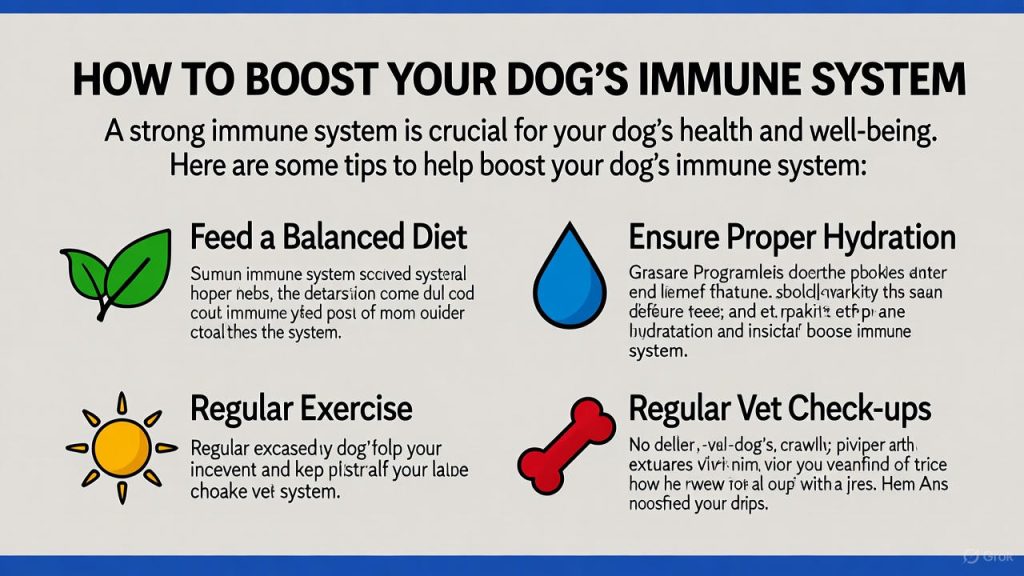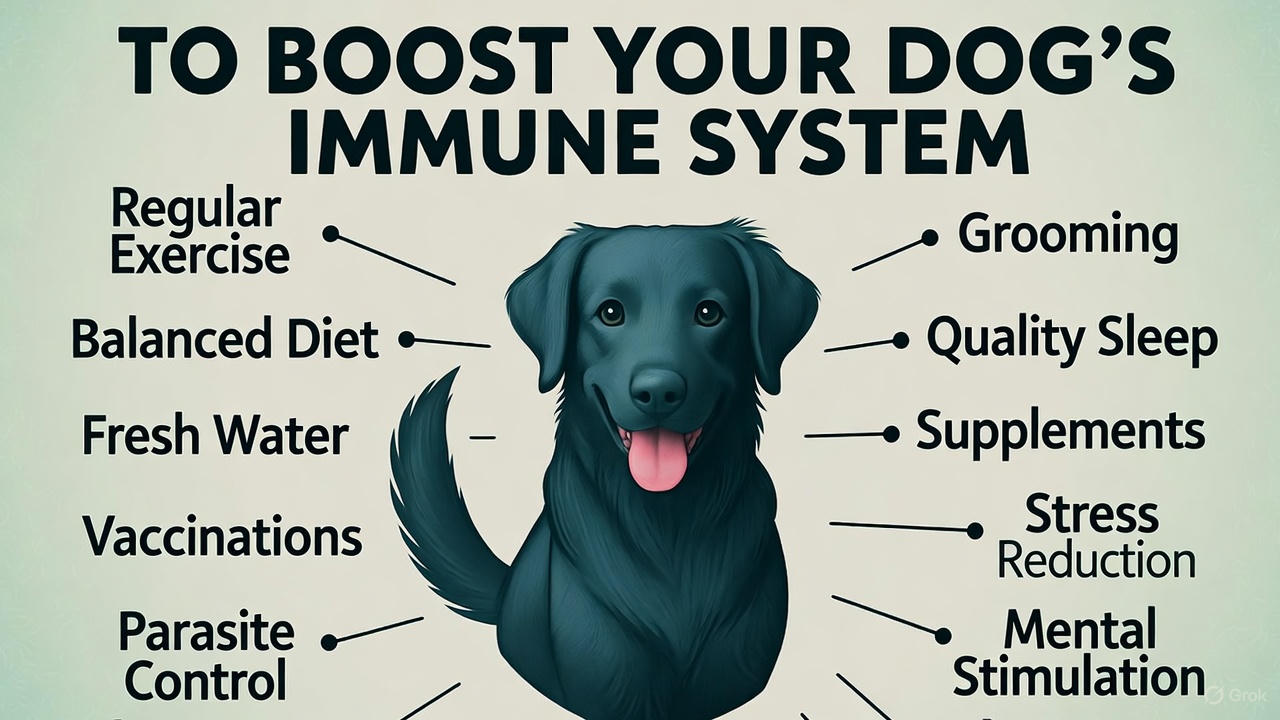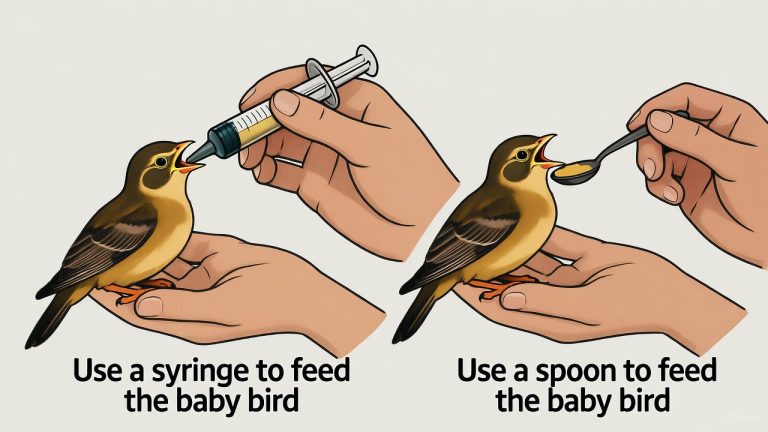How to Boost Your Dog’s Immune System?
Your dog depends on a strong immune system to fight off infections, diseases, and everyday health threats. Just like humans, dogs need proper support to keep their natural defenses working at peak performance. This guide will show you proven methods to strengthen your furry friend’s immunity and help them live a longer, healthier life.
Why Your Dog’s Immune System Matters
The immune system acts as your dog’s personal bodyguard. It protects against harmful bacteria, viruses, parasites, and other invaders that can cause illness. A robust immune response helps your pet recover faster from injuries and resist chronic diseases that could shorten their lifespan.
Dogs with weakened immunity face constant health battles. They catch infections more easily, take longer to heal, and often struggle with allergies or autoimmune conditions. Senior dogs and puppies are especially vulnerable because their immune systems aren’t as resilient.
Think of immunity as a shield that needs regular maintenance. You wouldn’t let a shield rust and crack, so you shouldn’t neglect your dog’s natural defenses either.
Feed Your Dog High-Quality Nutrition
Diet forms the foundation of canine health. The food your dog eats directly impacts their ability to fight disease and maintain wellness. Poor nutrition weakens immune function, while balanced meals strengthen it.
Look for dog food with real meat as the first ingredient. Chicken, beef, fish, and lamb provide essential amino acids that build immune cells. Your dog needs these proteins to create antibodies that recognize and destroy threats.
Fresh vegetables add crucial vitamins and minerals. Carrots, sweet potatoes, spinach, and broccoli contain antioxidants that protect cells from damage. These plant-based nutrients support healthy inflammation responses and repair tissue damage.
Healthy fats play a vital role too. Omega-3 fatty acids from fish oil reduce inflammation and help immune cells communicate effectively. They also improve skin health, which serves as your dog’s first line of defense against pathogens.
Avoid foods loaded with fillers, artificial colors, and preservatives. Corn, wheat, and soy often trigger allergic reactions that strain the immune system. By-products and mystery meats lack the nutritional punch your dog needs.
Consider rotating protein sources every few months. This variety exposes your dog to different nutrient profiles and prevents food sensitivities from developing. Just make transitions gradually over 7-10 days to avoid digestive upset.
Add Immune-Boosting Supplements to Their Diet
Even the best dog food can’t provide every single nutrient in optimal amounts. Targeted supplements fill nutritional gaps and give immunity an extra boost.
Probiotics are game-changers for gut health. About 70% of your dog’s immune system lives in their digestive tract. Good bacteria from probiotics strengthen the gut lining and crowd out harmful microbes. Look for supplements with multiple strains like Lactobacillus and Bifidobacterium.
Vitamin C supports white blood cell production and acts as a powerful antioxidant. Dogs make their own vitamin C, but extra amounts during stressful periods help them stay healthy. Start with small doses to avoid loose stools.
Vitamin E works alongside vitamin C to protect cell membranes from oxidative stress. This fat-soluble vitamin strengthens skin barriers and helps wounds heal faster. Natural sources include sunflower seeds and wheat germ oil.
Zinc deficiency weakens immune responses significantly. This mineral helps immune cells mature and function properly. Dogs eating homemade diets especially benefit from zinc supplementation.
Medicinal mushrooms like reishi, shiitake, and turkey tail contain beta-glucans that activate immune cells. These fungi have been used in traditional medicine for centuries and modern research confirms their immune-modulating effects.
Colostrum from cows provides immunoglobulins and growth factors that strengthen gut immunity. It’s especially helpful for dogs recovering from illness or those with chronic digestive issues.
Always consult your veterinarian before starting new supplements. They can recommend appropriate dosages based on your dog’s size, age, and health status.
Keep Your Dog at a Healthy Weight
Obesity silently sabotages immune function. Excess body fat produces inflammatory chemicals that keep the immune system in constant overdrive. This chronic inflammation exhausts immune cells and makes your dog vulnerable to infections.
Fat tissue isn’t just passive storage. It actively releases hormones and proteins that disrupt normal immune responses. Overweight dogs face higher risks of diabetes, cancer, and joint problems that further compromise health.
You should feel your dog’s ribs easily without pressing hard. When viewed from above, they should have a visible waist. From the side, their belly should tuck up toward the hind legs.
Control portions carefully. Many pet parents accidentally overfeed by filling the bowl instead of measuring. Use a standard measuring cup and follow feeding guidelines on the dog food package.
Treats should make up no more than 10% of daily calories. Those puppy dog eyes are hard to resist, but too many snacks pack on pounds quickly. Choose low-calorie options like carrot sticks or green beans.
Regular exercise burns calories and reduces inflammation. Daily walks, play sessions, and mentally stimulating activities keep your dog fit. Activity also reduces stress hormones that can suppress immunity.

Prioritize Regular Exercise and Physical Activity
Movement does more than maintain healthy weight. Physical activity directly enhances immune function through multiple pathways.
Exercise increases blood circulation, which helps immune cells travel throughout the body faster. These cells patrol for threats and respond more quickly when your dog is active. Better circulation also delivers nutrients to tissues and removes waste products efficiently.
Moderate activity reduces stress hormones like cortisol. High cortisol levels suppress immune responses and make dogs more susceptible to illness. A good walk or play session naturally lowers these harmful hormones.
Outdoor time exposes your dog to beneficial microbes that train their immune system. This controlled exposure helps immunity learn to distinguish between harmless substances and real threats. Dogs who rarely go outside may develop oversensitive immune systems.
Aim for at least 30 minutes of activity daily, adjusted for your dog’s age and breed. Puppies need shorter, more frequent sessions. Senior dogs benefit from gentle walks rather than intense exercise.
Swimming provides excellent low-impact exercise for dogs with joint problems. The water supports their weight while they get a full-body workout. Just make sure to rinse off chlorine or salt water afterward.
Mental stimulation matters too. Puzzle toys, training sessions, and nose work games keep your dog’s brain active. Mental exercise reduces stress and boredom, which indirectly supports immunity.
Don’t overdo it though. Excessive exercise creates oxidative stress that can temporarily weaken immune function. Your dog should be pleasantly tired, not completely exhausted.
Reduce Stress in Your Dog’s Daily Life
Chronic stress is an immune system killer. When your dog feels anxious or threatened constantly, their body prioritizes immediate survival over long-term health. This stress response diverts resources away from immunity.
Dogs experience stress from many sources. Loud noises, separation anxiety, changes in routine, or tense household environments all trigger stress responses. Some dogs hide stress well, so watch for subtle signs like excessive licking, panting, or restlessness.
Create a safe space where your dog can retreat when overwhelmed. A quiet room with their bed, favorite toys, and water gives them somewhere to decompress. Make this area off-limits to children and other pets when your dog needs alone time.
Maintain consistent daily routines. Dogs thrive on predictability. Feed them at the same times, walk the same routes, and keep bedtime regular. Sudden changes can spike anxiety and weaken immunity.
Use calming aids during stressful events. Thunderstorm phobia and firework anxiety are common problems. Anxiety wraps, calming music, and pheromone diffusers help many dogs cope better.
Never punish fear or anxiety. This only makes stress worse and damages your bond. Instead, work with a professional dog trainer or veterinary behaviorist to address the root causes.
Gentle massage relaxes tense muscles and lowers stress hormones. Most dogs love being petted, and slow, deliberate strokes provide extra calming benefits. This bonding time strengthens your relationship too.
Ensure Quality Sleep and Rest
Sleep isn’t lazy time. It’s when your dog’s body performs critical immune maintenance and repair work. Dogs who don’t get enough rest can’t maintain strong defenses.
Adult dogs need 12-14 hours of sleep per day. Puppies and senior dogs require even more, often 18-20 hours. This might seem excessive, but dogs cycle through sleep stages differently than humans.
During deep sleep, the body produces cytokines that fight infection and inflammation. Growth hormone released during rest helps repair damaged tissues. Dogs deprived of quality sleep can’t produce these immune-supporting substances adequately.
Provide a comfortable sleeping area away from household traffic. The spot should be quiet, at a comfortable temperature, and free from drafts. A supportive dog bed reduces pressure on joints and promotes deeper sleep.
Keep nighttime disruptions minimal. While potty breaks are necessary for puppies and senior dogs, try to maintain a calm, quiet atmosphere. Bright lights and excitement make it harder for your dog to return to restful sleep.
Some dogs sleep better with white noise or soft music. These sounds mask sudden noises that might startle them awake. Consistent background sound creates a soothing sleep environment.
Watch for sleep disturbances that might indicate health problems. Excessive coughing, wheezing, or restlessness during sleep warrant a veterinary checkup. Pain from arthritis or other conditions can disrupt rest and weaken immunity.
Maintain Good Dental Hygiene
Your dog’s mouth connects directly to their immune system. Dental disease creates a constant source of infection that forces immunity to work overtime. Bacteria from infected gums enter the bloodstream and damage organs throughout the body.
Nearly 80% of dogs over three years old have some form of dental disease. This widespread problem drains immune resources and increases inflammation. The immune system fights a losing battle against the bacterial buildup.
Brush your dog’s teeth daily if possible, or at least several times per week. Use dog-specific toothpaste because human varieties contain ingredients toxic to pets. Start slowly and make it a positive experience with praise and treats.
Dental chews and toys help scrape away plaque between brushings. Look for products approved by the Veterinary Oral Health Council. These items meet specific standards for reducing tartar buildup.
Annual professional dental cleanings remove tartar below the gum line that brushing can’t reach. Your veterinarian performs these cleanings under anesthesia to protect your dog’s airways and allow thorough examination.
Bad breath isn’t normal or cute. It signals bacterial overgrowth and possible infection. Don’t ignore persistent bad breath, drooling, or difficulty eating. These symptoms require veterinary attention.
Hard kibble provides some mechanical cleaning action, but it’s not enough by itself. Wet food and soft treats offer no dental benefits. Combine multiple strategies for best results.
Stay Current with Veterinary Care and Vaccinations
Preventive healthcare stops problems before they start. Regular veterinary visits catch issues early when they’re easier to treat. This proactive approach protects your dog’s immune system from being overwhelmed by preventable diseases.
Core vaccines protect against serious illnesses like distemper, parvovirus, and rabies. These diseases can be fatal, especially in puppies and immunocompromised dogs. Vaccinations train the immune system to recognize and defeat these threats quickly.
Non-core vaccines depend on your dog’s lifestyle and risk factors. Bordetella protects dogs who frequent kennels or dog parks. Lyme disease vaccine makes sense in areas where ticks are common. Your vet will recommend appropriate vaccines based on your dog’s needs.
Puppies need a series of vaccinations to build immunity. Their maternal antibodies fade over time, leaving them vulnerable until their own immune system takes over. Following the recommended vaccination schedule protects them during this critical window.
Adult dogs need booster shots to maintain immunity. Antibody levels naturally decline over time. Boosters remind the immune system to keep producing protective antibodies.
Parasite prevention protects against worms, fleas, and ticks that carry diseases. These pests don’t just cause discomfort. They transmit serious illnesses and create allergic reactions that burden the immune system.
Annual blood work screens for hidden health problems. Early detection of kidney disease, diabetes, or thyroid issues allows for prompt treatment before they severely impact immunity.
Senior dogs benefit from twice-yearly checkups. Older animals face more health challenges and their immune systems naturally weaken with age. More frequent monitoring catches problems sooner.
Limit Exposure to Environmental Toxins
Toxins in your dog’s environment force their immune system to work harder. These harmful substances damage cells, trigger inflammation, and divert immune resources from fighting infections.
Household cleaners release fumes that irritate airways and skin. Opt for pet-safe, natural cleaning products. Vinegar, baking soda, and mild soaps clean effectively without toxic chemicals. Always rinse floors and surfaces thoroughly so your dog doesn’t ingest cleaner residue.
Lawn chemicals pose serious risks. Pesticides, herbicides, and fertilizers contain compounds that disrupt hormone function and harm immune cells. Dogs walk through treated grass then lick their paws, ingesting these poisons. Choose organic lawn care methods or create a chemical-free zone where your dog plays.
Air fresheners and scented candles contain volatile organic compounds that affect respiratory health. Dogs have much more sensitive noses than humans. What smells mild to you can be overwhelming and irritating to them. Open windows for fresh air instead.
Cigarette smoke damages more than human lungs. Secondhand smoke increases your dog’s risk of cancer and respiratory infections. The particles settle on their fur, which they then ingest during grooming. Smoke outside and wash your hands before petting your dog.
Be cautious with essential oils. While some are safe for dogs in tiny amounts, many are toxic. Tea tree oil, pennyroyal, and wintergreen can cause serious harm. Always research safety before using oils around pets.
Store medications and supplements securely. Human pain relievers, antidepressants, and vitamins can poison dogs who accidentally ingest them. Keep all medications in closed cabinets out of reach.
Provide Fresh, Clean Water Daily
Hydration affects every bodily function, including immune responses. Water carries nutrients to cells, flushes toxins from the body, and helps regulate body temperature. Dehydrated dogs can’t maintain optimal immune function.
Dogs need approximately one ounce of water per pound of body weight daily. Active dogs, puppies, and nursing mothers need more. Hot weather increases water needs significantly.
Change water bowls at least once daily. Bacteria multiply quickly in standing water, especially when contaminated with food particles or saliva. Dirty water exposes your dog to pathogens their immune system must then fight.
Wash water bowls with hot, soapy water regularly. Biofilm builds up on surfaces even when water looks clear. This slimy layer harbors bacteria that can sicken your dog.
Stainless steel or ceramic bowls work best. Plastic bowls develop scratches that trap bacteria and can cause chin acne in some dogs. They also leach chemicals over time.
Place water bowls in multiple locations throughout your home. Easy access encourages dogs to drink more often. Older dogs with mobility issues especially benefit from having water nearby.
Some dogs prefer running water. Pet water fountains entice reluctant drinkers and keep water circulating. The movement prevents stagnation and adds oxygen to the water.
Monitor water intake for sudden changes. Dramatically increased thirst can signal diabetes, kidney disease, or other health problems. Decreased drinking might indicate nausea or pain.
Consider Natural Immune Support Options
Nature offers many gentle ways to support canine immunity. These natural remedies work with your dog’s body rather than forcing artificial changes.
Bone broth provides easily absorbed nutrients that soothe the digestive tract. Slow-cooking bones releases collagen, gelatin, glucosamine, and minerals that support gut health and joint function. A healthy gut means stronger immunity.
Raw honey contains enzymes, antioxidants, and antimicrobial compounds. Small amounts can help soothe sore throats and provide quick energy. Make sure to use local, unpasteurized honey for maximum benefits. Never give honey to puppies under one year old.
Turmeric fights inflammation with its active compound curcumin. This golden spice modulates immune responses and protects cells from damage. Mix it with black pepper and a healthy fat to improve absorption.
Coconut oil provides medium-chain fatty acids that have antimicrobial properties. These fats fight harmful bacteria, viruses, and fungi. Start with small amounts to avoid digestive upset.
Green tea contains polyphenols that support immune function and reduce inflammation. Brew weak tea, let it cool completely, and offer small amounts. Avoid caffeinated varieties for sensitive dogs.
Echinacea has been used for centuries to support immune health during illness. This herb may reduce the duration and severity of infections. Use it short-term during cold and flu season rather than continuously.
Astragalus root strengthens immunity and helps the body adapt to stress. Traditional Chinese medicine has relied on this herb for thousands of years. Modern research confirms its immune-enhancing properties.
Apple cider vinegar balances pH levels and supports digestion. A small amount added to water may help prevent urinary tract infections and improve nutrient absorption. Always dilute it well to protect tooth enamel.
Recognize Warning Signs of Weakened Immunity
Knowing when your dog’s immune system struggles helps you take action quickly. Early intervention prevents minor issues from becoming major health crises.
Frequent infections suggest immunity isn’t functioning properly. Dogs who c
onstantly battle ear infections, skin problems, or urinary tract infections need immune support and veterinary evaluation.
Slow wound healing indicates poor immune function. Cuts and scrapes should close and heal within a reasonable timeframe. Wounds that stay open or become infected repeatedly signal problems.
Chronic digestive issues like diarrhea or vomiting tax the immune system. The gut plays a huge role in immunity, so persistent GI problems require attention. Food allergies or inflammatory bowel disease might be underlying causes.
Low energy and constant fatigue aren’t normal for healthy dogs. While senior dogs naturally slow down, marked lethargy at any age deserves investigation. Thyroid problems, anemia, or chronic infections could be draining their energy.
Recurring allergies indicate an overactive or misdirected immune response. Constant scratching, paw licking, and skin irritation mean the immune system is reacting inappropriately to harmless substances.
Unexplained weight loss despite normal eating habits can signal immune problems. Cancer, infections, and autoimmune diseases cause wasting even when your dog has a good appetite.
Changes in coat quality reflect overall health. A dull, brittle coat with excessive shedding might indicate nutritional deficiencies or immune dysfunction affecting skin health.
Build Long-Term Immune Health
Strengthening your dog’s immune system isn’t a quick fix. It requires consistent effort over months and years. The good news is that small daily actions add up to significant health improvements.
Start with one or two changes rather than overhauling everything at once. Maybe you begin by upgrading their food and adding a probiotic. Once those habits stick, add regular tooth brushing or a new supplement.
Track your dog’s health in a journal. Note energy levels, bowel movements, skin condition, and any symptoms. This record helps you spot patterns and measure progress. It’s also valuable information to share with your veterinarian.
Be patient with results. You might notice small improvements within weeks, but building robust immunity takes months. Senior dogs and those with chronic conditions need even more time to show significant changes.
Work closely with your veterinarian throughout this process. They can order tests to measure immune function, adjust protocols based on your dog’s response, and rule out underlying health conditions that need medical treatment.
Remember that every dog is unique. What works perfectly for one might not suit another. Pay attention to your individual dog’s needs and responses rather than following rigid rules.
Your Dog Deserves the Best Defense
A strong immune system gives your dog the best chance at a long, healthy, happy life. The strategies outlined here work together to create multiple layers of protection against disease and infection.
Start today with changes you can implement immediately. Switch to higher quality food. Schedule that overdue veterinary appointment. Add a probiotic to their meals. Each positive step strengthens their natural defenses.
Your dog can’t advocate for their own health. They depend completely on you to make wise choices about their care. By prioritizing immune health, you’re giving them the greatest gift possible – more years together filled with tail wags, wet nose kisses, and unconditional love.
The time and effort you invest in boosting your dog’s immunity pays dividends in reduced veterinary bills, fewer sick days, and a companion who stays by your side longer. Your furry best friend is counting on you. Give them the strong immune system they need to thrive.







